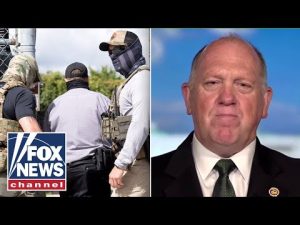**Understanding the Debate on Deportation and Free Speech for Non-Citizens**
In recent weeks, a heated discussion has emerged concerning the deportation of non-citizens in the context of political speech. This topic gained momentum with the Trump administration’s actions regarding certain immigrants who are on student visas, notably in light of their perceived alignment with activities contrary to U.S. policy, such as support for groups like Hamas. The implications of these actions raise significant questions about the balance between freedom of speech and the conditions of residence for non-citizens in America.
Let’s break it down. According to representatives of the Trump administration, the argument is quite straightforward: non-citizens, including those on student visas, are essentially just visitors to the United States. With that status comes certain strings attached. If they engage in activities or express opinions deemed inconsistent with U.S. values or interests, then they can be sent back to their home countries. This standpoint underscores the idea that a student visa is a conditional invitation, not a guarantee of unbridled freedom of speech. If the government decides that a visitor’s behavior crosses a line, a one-way ticket home could be in their future.
But how does this concept of conditional rights actually hold up against constitutional standards? Here’s where things get tricky. The opponents of these deportation proceedings argue that everyone within the U.S. is entitled to some constitutional protections, including free speech. They contend that if the government can deport someone merely for their speech—especially those in a non-citizen status—it opens a Pandora’s box where dissent against the government, even mild dissent, could result in forcible removal.
The debate becomes even more intricate when considering who exactly is deemed a visitor and how their rights are perceived differently from those of U.S. citizens. For instance, can a student who vocally supports a group like Hamas be sent home simply for exercising their right to express dissenting opinions? This leads to the larger concern: what happens when the lines blur between valid political expression and activism that could threaten national interests?
As the discussion unfolds, it raises a broader philosophical question about America’s values. Many people pride themselves on living in a nation where diverse opinions can flourish. Critics of the current approach suggest that if the government can wield such power to deport based on speech, it could set a dangerous precedent. Imagine a future where those in power might misuse such authority—what if a hypothetical future administration decides that certain forms of conservative speech were against the interests of the state? This slippery slope has many concerned about how it might affect the political landscape in this country.
At the end of the day, the conversation around this issue centers not just on the legality of actions taken by the government, but also on the long-term values America as a nation wants to uphold. The balancing act between maintaining security and fostering a robust environment where differing opinions can coexist remains a hot topic. As discussions continue, what remains clear is the urgent need for a thoughtful dialogue that weighs the importance of civil liberties against the pressing concerns of national security—all while remembering what it truly means to be American.







